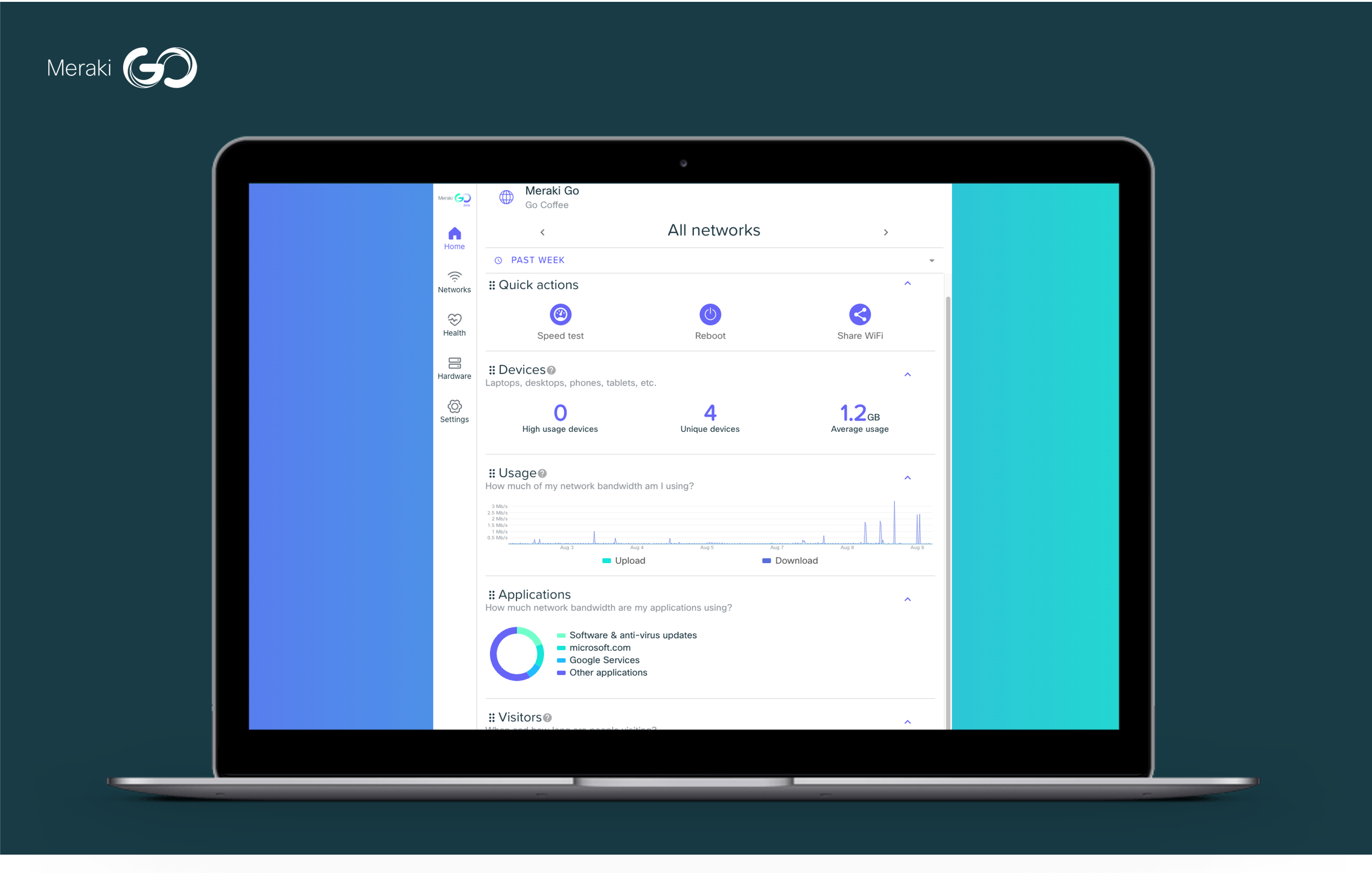The Dahlia School of San Francisco is an authentic Montessori school at the heart of the diverse Mission Bay community. As one of the 60 non-profit Wildflower Schools across the country, the Dahlia School is committed to equitable access to exceptional education. It just celebrated its second year and employs 10 teachers who guide 41 students.
Co-Founder and Head of School Alejandra Tryon has been a passionate Montessori educator since she moved from Columbia 13 years ago. Her unique background is one reason the school offers a Spanish immersion program to its students.
Authentic Montessori schools are unlike other pre-schools in their focus on empowering students and encouraging independence at every age. “The Montessori teaching method really embraces the spirit of every child,” shares Dahlia School Co-Founder and Executive Director Lindsey Barnes. “It allows them to be independent…and provides them with [the] belief that they can make good decisions on their own.”
Because the children access their own materials and initiate much of their own work, being an educator at a Montessori school is a very different experience. Teachers guide rather than tell students what to do. In addition, observation of the students – including sharing those observations with parents – is key. This approach to education is one of the biggest reasons the Dahlia School needed secure and reliable business-grade WiFi.
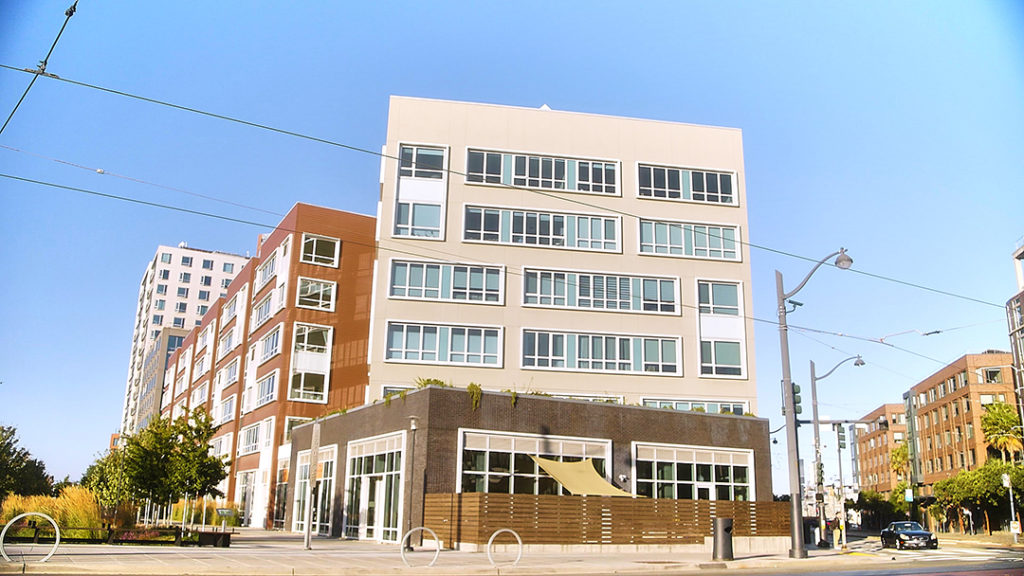
The Dahlia School of San Francisco and
Co-Founders Lindsey Barnes (left) and Alejandra Tryon
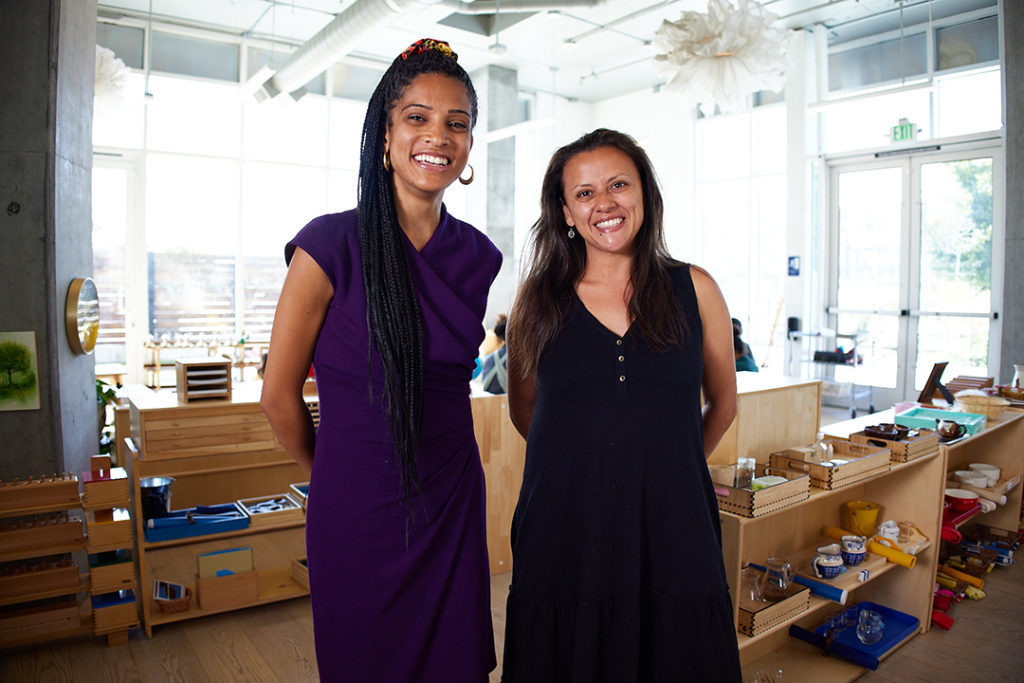
Challenges
Starting any kind of business has its innate challenges, particularly in education. “Starting your own school is a big thing, right?” Tryon asks rhetorically. “It’s not easy and it is not cheap.”
The Dahlia School also started in the middle of the pandemic, though that did bring about an opportunity. The pandemic caused many businesses in San Francisco to close and made it near impossible for new businesses to open. For this reason, an amazing commercial space became available in Mission Bay. However, the space would take a tremendous amount of construction to turn it – a former furniture store – into the school of their dreams.
“People actually thought we were a little insane trying to start the construction of a school at that time,” Tryon recalled.
As great as the space was, connectivity was extremely difficult in their chosen location. First, even getting internet service for the building was a challenge. Then, due to the layout of the large space, reliable WiFi was a challenge as well. The Dahlia School has two classrooms, a multi-purpose room, an area for teachers, and an administrative office. The campus also includes an outdoor space for students as well.
The co-founders started their WiFi journey with the equipment provided by their internet service provider. “It was a modem just like I have in my apartment,” Tryon remembers. But they quickly realized it was unreliable and its range was far too limited.
Observation is central to Montessori education, and today much of that is accomplished with mobile devices and other technology. The administration and operation of the Dahlia School would also depend on mobile devices and other technology. Therefore, WiFi was critical to their mission and the problem needed to be solved immediately. “We really need reliable connectivity as a school and as teachers,” says Barnes. “It’s also important that we can have continuous communication with all of our partners that help the school run as well as with parents.”
The co-founders knew they required a robust network solution. However, the Dahlia School also faced two more challenges – they had a limited budget and no one was experienced in IT. They therefore needed something that was affordable, easy to set up, and equally easy to manage.
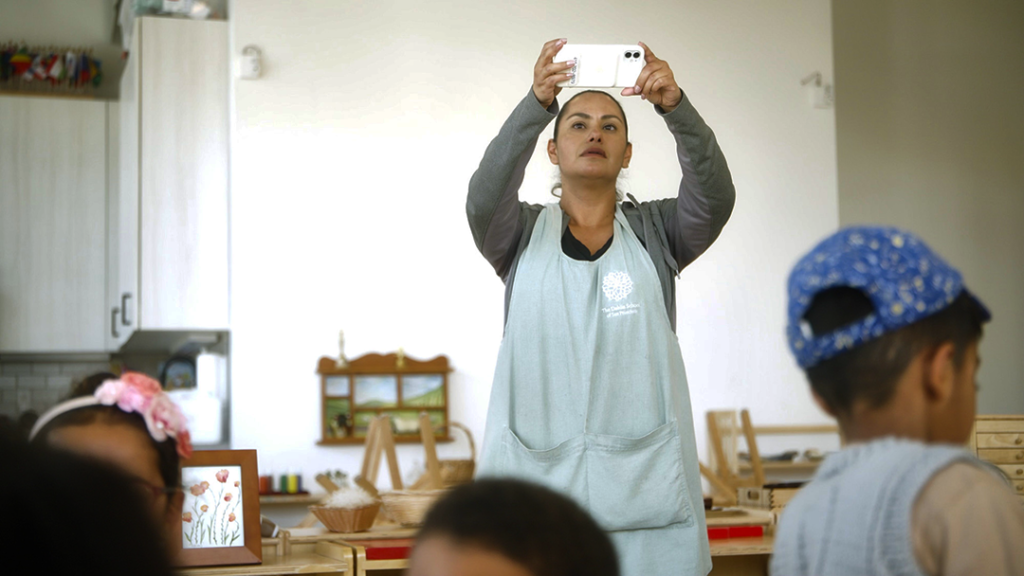
Observation – and sharing those observations – is part of authentic Montessori education
and today that is empowered by technology and WiFi
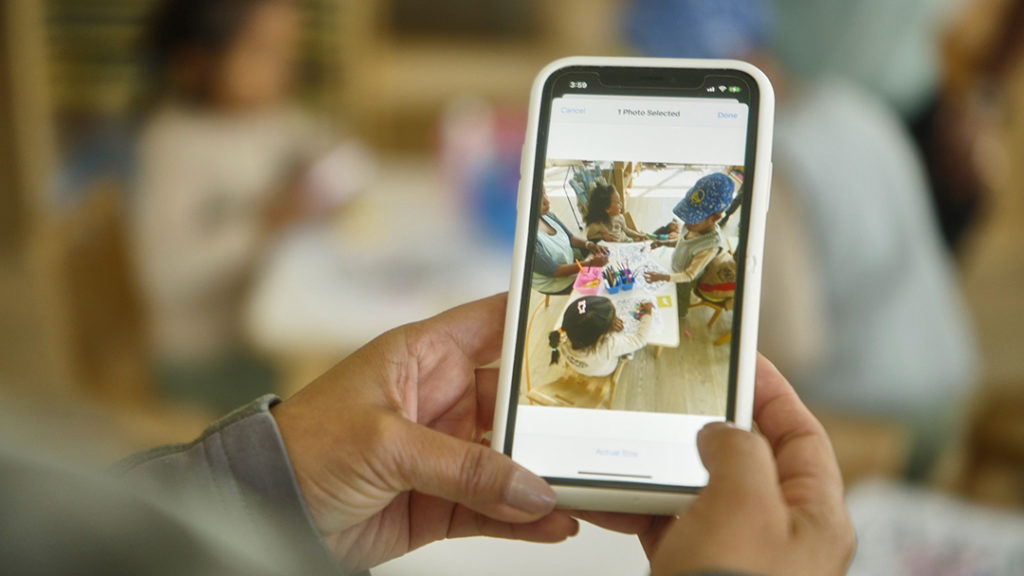
Solutions
Barnes and Tryon turned to their community for suggestions and Meraki Go was highly recommended. The school selected an 8-port network switch, Router Firewall, and two indoor WiFi 6 access points. Everyone was excited by its simplicity along with how quickly the WiFi was up and running.
Students may not use any technology at the Dahlia School, but the teachers and administrators use it for absolutely everything. They use a wide range of devices that need to be continuously connected across the school, including:
- iPads in the classrooms for teachers to create lesson plans and take notes
- Mobile phones for teachers to share photos and communicate with parents
- Video cameras inside classrooms for student observation
- Video cameras outside the school for safety
- Computers and mobile phones for administrators in every classroom
- Touchless entry using a QR code for staff and parents
“We chose Meraki Go because it’s secure, reliable, and easy.”
Lindsey Barnes
Co-Founder, The Dahlia School
The Dahlia School is also paperless. Everything is done online from the moment a parent applies to the school. The same platform is what parents then use to fill out forms, view progress reports, and communicate with educators. The school also uses another platform for their staff and operational needs.
“For all that, we really need our technology and WiFi to work all the time,” Tryon says.
Another priority for the Dahlia School is cybersecurity. “We host a lot of children data, family data, and all of this is very sensitive,” Barnes shares.
They quickly discovered that Meraki Go addressed their many needs. “Not only is it reliable,” Barnes asserts, “we also know that it’s secure and we have found it easy to use as well.” Meraki Go’s business-grade WiFi empowers Dahlia School educators to accomplish every aspect of their mission.
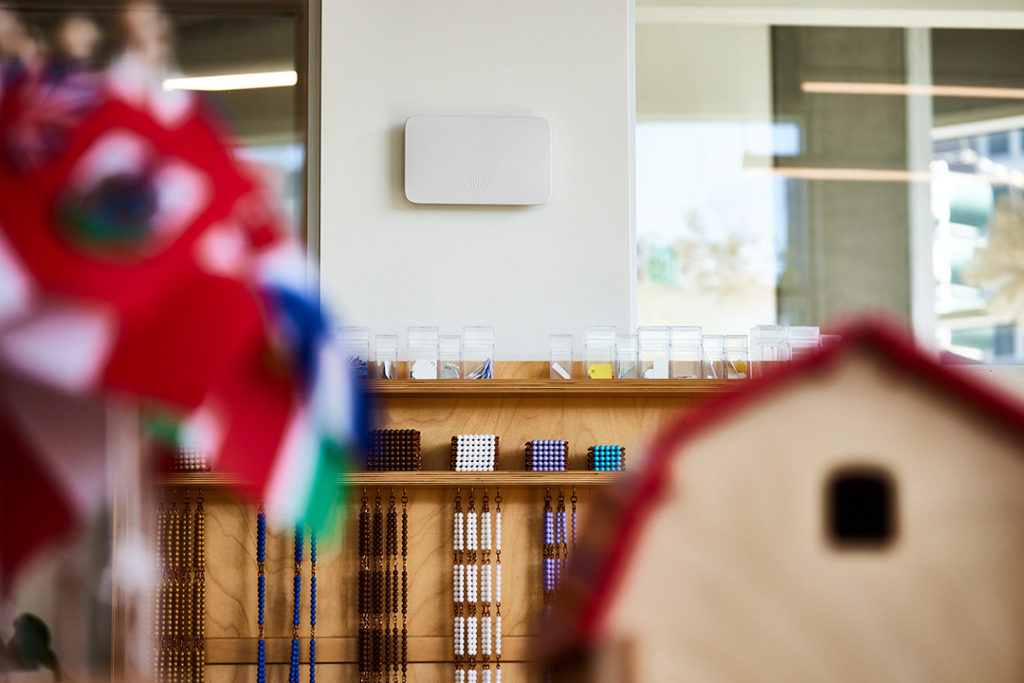
The Dahlia School’s Meraki Go WiFi 6 indoor access points
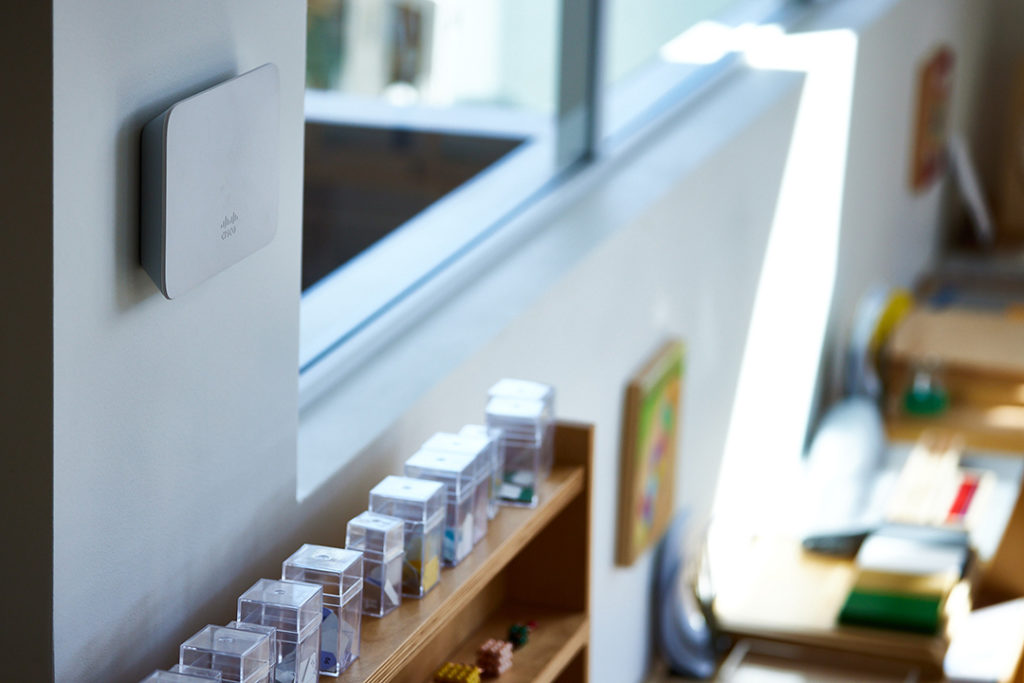
Future plans
The Dahlia School is only continuing to grow. “We dream big,” Tryon says. “We want to offer Montessori education in San Francisco up to high school some day, so we are currently expanding to elementary school.”
“Meraki Go devices work perfect. Perfect.”
Alejandra Tryon
Co-Founder, The Dahlia School
Whereas their pre-school students don’t use any technology, it will be a very different story for their older students. Laptops will be available for their studies and the Dahlia School’s WiFi needs to support the increased number of connected devices.
Fortunately, Meraki Go is able to grow with small businesses. The WiFi 6 access points, for example, support up to 100 connected devices at once. “As our children get older,” Barnes says, “we still need secure, reliable, and easy-to-use WiFi because we are becoming a collection of storefront schools.”
“As we grow,” she adds, “we intend to continue using Meraki Go because it’s been so consistent for us. It’s nice to be able to have an easy solution for our small businesses that’s also consistent across them.”
Nothing could sum up the Dahlia School’s experience with Meraki Go better than Tryon’s parting words. “Meraki Go devices work perfect.” she says. “Perfect.”

Products
The Dahlia School of San Francisco currently uses the following Meraki Go devices in its network:
2 – Meraki Go WiFi 6 indoor access points (GR12)
1 – Meraki Go Router Firewall (GX20)
1 – Meraki Go 8-port network switch (GS110)
Visit the Meraki Go site to learn even more about our intuitive and innovative solutions that support small businesses.



